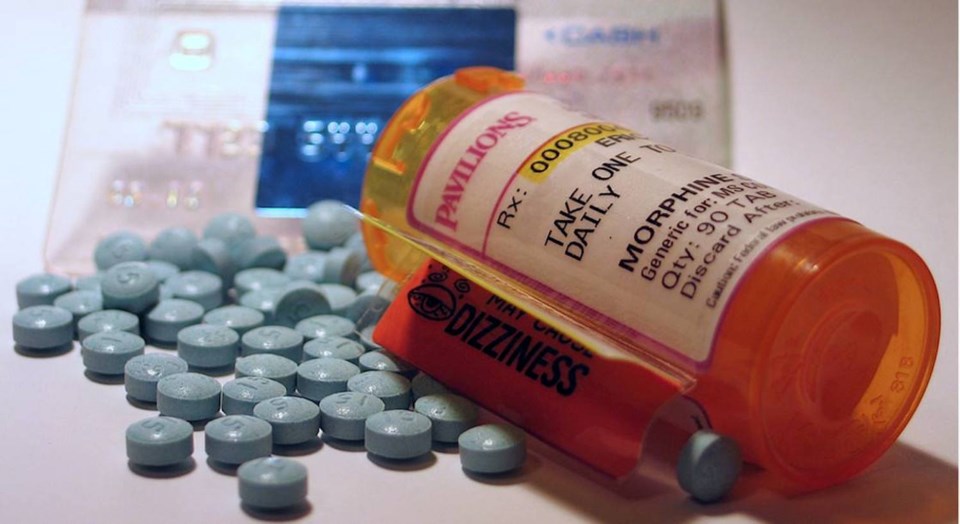A special report by Ontario Provincial Police on the opioid crisis said police will continue a policy of pursuing drug dealers responsible for, or connected to, overdose deaths.
It is listed as one of the Conclusions and Next Steps in a special 59-page report released by OPP on Tuesday titled 2019 Opioids and Overdoses: Impacts and Strategies.
The report revealed there was a 34 per cent increase in overdose-related deaths in 2019, in OPP-policed communities, when compared to overdose deaths in those areas for the same period the year before, in 2018.
The report also showed a breakdown of overdose deaths in the five regions policed by the OPP. Northeastern Ontario had the second lowest number of deaths last year, but the increase from 2019 over 2018 was startling. This region had 28 overdose deaths in 2019, an increase of 144 per cent over the number reported in 2018.
Related to that, the report also revealed an effort at holding drug traffickers accountable for overdose related deaths — the OPP said it laid more than 100 charges in 12 overdose-related death investigations in 2019. The report said 17 charges in 2018 increased to the 102 charges in 2019, representing a 500-per-cent increase over 2018.
"The OPP, along with other police services in Ontario, have been sending a clear and concise message to drug dealers in our province — claiming ignorance is not an acceptable excuse for supplying drugs that are killing people within our communities," said the report, which added this would justify charges of manslaughter and criminal negligence causing death.
"Another element of thorough drug overdose investigations framework that the OPP has initiated is the mandatory notification to the OPP’s Community Street Crime Unit (CSCU) of suspected overdoses. This allows the local CSCU to initiate a parallel drug investigation (if not already engaged) and attempt to source the substance(s) causing harm. In some cases, this has led to charges under the Controlled Drugs and Substances Act (CDSA)," said the report.
OPP Commissioner Thomas Carrique commented that drug distributors have to be held responsible.
"There are no excuses in today's environment for these harmful drugs to be distributed through our communities. One person is dying every 4.7 hours in Ontario from opioids. We will continue to pursue those who are knowingly trafficking harmful opioids, such as fentanyl, and we will hold them responsible for their actions. We will do this while supporting our social and health services partners in a collective effort to help those impacted by this crisis" said Carrique.
The report also revealed that while fentanyl was the most prevalent opioid identified in illegal drug samples seizures, the investigations included the seizure of many drugs not limited to opioids (i.e. cocaine, methamphetamine).
"For the 2019 reporting period, fentanyl was the most seized opioid in OPP jurisdictions (35 per cent) followed by hydromorphone (20 per cent) and oxycodone (19 per cent)," said the report.
The report said several proactive efforts are being promoted by the OPP to fight the opioid crisis. This includes the distribution of Naloxone kits, in an attempt to reverse overdose deaths, along with promoting the benefits of the Good Samaritan Drug Overdose Act — a law which exempts a person from possession charges or probation violation charges if they take action to seek medical assistance for themselves or another person experiencing a drug overdose.



.jpg;w=120;h=80;mode=crop)